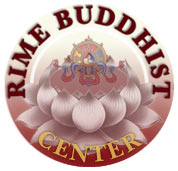Charlottesville: True Spiritual Teachers by Sergio Moreno
 There is an expression in Mexico: “El que calla otorga.” In English we might say, “Silence is complicity.” I grew up with this notion that to be neutral in the face of injustice was to be complicit.
There is an expression in Mexico: “El que calla otorga.” In English we might say, “Silence is complicity.” I grew up with this notion that to be neutral in the face of injustice was to be complicit.
When I came to the Dharma, I was taught to avoid extremes, to seek the middle way. I was taught to respond, rather than react. I was taught not to suppress my emotions, but rather to observe them. I learned that I could in fact observe strong emotions as they arose without being triggered or hooked by them. Practicing and cultivating equanimity enables us to observe these emotions without attachment or reaction. However, we must remember that equanimity is not indifference. Far from it.
I awoke on August 12th, like many of you, to the news of violence and conflict in Charlottesville, Virginia. As reports came in, my feelings of sadness and grief turned to feelings of anger and frustration. Racism and white supremacy have been the scourge of our nation for far too long. And in recent months, these demons of our collective conscience have reared their ugly faces with renewed vigor and vitriol. Only now, after hiding behind computer screens, people had brought their racially-motivated hatred and violence into a public space. Following reports of clashes between white supremacists and counter protesters, we learned of the act of terror by a white supremacist had resulted in the death of Heather Heyer and serious injuries to others.
Like many of you, I look to the Dharma for guidance and comfort in times like these and I find myself conflicted. It’s incredibly difficult to respond from a place of compassion and equanimity in the face of blind hate and violence. But that’s precisely what the Dharma challenges us to do.
The Sunday after these terrible events, I was scheduled to present a talk on the sixth verse of Geshe Langri Thangpa’s Eight Verses of Training the Mind.
Even when someone I have helped,
Or in whom I have placed great hopes
Mistreats me very unjustly,
I will view that person as a true spiritual teacher.
I had spent time with the teachings and had prepared my remarks. But everything was different now. I was troubled, nervous, shaking. How could I speak on this verse in the midst of Charlottesville? How could I say that the Dharma asks us to see white supremacists and racists as our true spiritual teachers? It was very difficult to find the conviction to say this. My skin is brown, I have a Spanish name, some think I speak with an accent. So, I have a bit of an idea of what it’s like to be on the receiving end of prejudice. How am I supposed to hold those who mistreat me in the same light I hold my true spiritual teachers? That’s the challenge.
So I shared what I’m learning as I’ve contemplated this verse. I’m learning that I am not as patient, loving and kind as I like to think I am … that wishing for the happiness of all sentient beings is easier said than done … that I have a long way to go. And I am realizing that one who mistreats me is truly a great teacher for me. I’m not saying this is easy or pleasant. I never will. I’m just saying it’s the practice.
One of the causes of racism is xenophobia, an irrational fear or aversion to those we see as other. They don’t look like me. They don’t talk like me. They don’t think like me. They are other. And, in my experience, the Dharma offers a powerful antidote for this delusion. You see, as we practice, as we rid ourselves of delusion, we begin to realize that there isn’t an other. Therefore, what we fear and hate isn’t actually there.
This is the practice, to remind ourselves that harmful people can be our true teachers because they bring us face to face with our shortcomings and weaknesses. These people reveal the obscurations and delusions that still cloud our mind, that keep us from seeing true nature. And if we are able to regard those who hurt us the most in the same way as we regard our true spiritual teachers, we can see that in fact there is no difference between the two.
Sergio Moreno
Ngakpa Tenpa Dhargye

